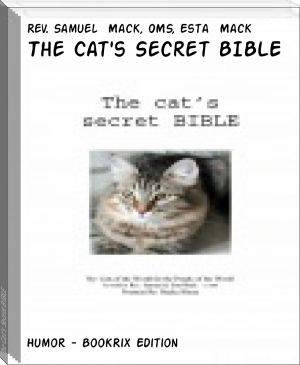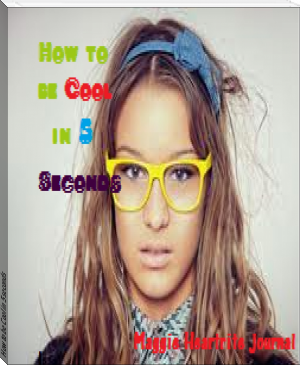Not George Washington — an Autobiographical Novel by Westbrook and Wodehouse (thriller books to read txt) 📗

- Author: Westbrook and Wodehouse
Book online «Not George Washington — an Autobiographical Novel by Westbrook and Wodehouse (thriller books to read txt) 📗». Author Westbrook and Wodehouse
I first met the Reverend on the top of Box Hill one Saturday afternoon. Bike had punctured, and the Reverend gave me the loan of his cyclists' repairing outfit. We had our tea together. Watercress, bread-and-butter, and two sorts of jam—one bob per head. He issued an invite to his diggings in the Temple. Cocoa and cigs. of an evening. Regular pally, him and me was. Then he got into the way of taking me down to a Boys' Club that he had started. Terrors they were, so to put it. Fair out-and-out terrors. But they all thought a lot of the Reverend, and so did I. Consequently it was all right. The next link in the chain was a chap called Cloyster. James Orlebar Cloyster. The Reverend brought him down to teach boxing. For my own part, I don't fancy anything in the way of brutality. The club, so I thought, had got on very nicely with more intellectual pursuits: draughts, chess, bagatelle, and what-not. But the Rev. wanted boxing, and boxing it had to be. Not that it would have done for him or me to have mixed ourselves up in it. He had his congregation to consider, and I am often on duty at the downstairs counter before the very heart of the public. A black eye or a missing tooth wouldn't have done at all for either of us, being, as we were, in a sense, officials. But Cloyster never seemed to realise this. Not to put too fine a point upon it, Cloyster was not my idea of a gentleman. He had no tact.
The next link was a confirmed dipsomaniac. A terrible phrase. Unavoidable, though. A very evil man is Tom Blake. Yet out of evil cometh good, and it was Tom Blake, who, indirectly, stopped the boxing lessons. The club boys never wore the gloves after drunken Blake's visit.
I shall never—no, positively never forget that night in June when matters came to a head in Shaftesbury Avenue. Oh, I say, it was a bit hot—very warm.
Each successive phase is limned indelibly—that's the sort of literary style I've got, if wanted—on the tablets of my memory.
I'd been up West, and who should I run across in Oxford Street but my old friend, Charlie Cookson. Very good company is Charlie Cookson. See him at a shilling hop at the Holborn: he's pretty much all there all the time. Well-known follower—of course, purely as an amateur—of the late Dan Leno, king of comedians; good penetrating voice; writes his own in-between bits—you know what I mean: the funny observations on mothers-in-law, motors, and marriage, marked "Spoken" in the song-books. Fellows often tell him he'd make a mint of money in the halls, and there's a rumour flying round among us who knew him in the "Moon" that he was seen coming out of a Bedford Street Variety Agency the other day.
Well, I met Charlie at something after ten. Directly he spotted me he was at his antics, standing stock still on the pavement in a crouching attitude, and grasping his umbrella like a tomahawk. His humour's always high-class, but he's the sort of fellow who doesn't care a blow what he does. Chronic in that respect, absolutely. The passers-by couldn't think what he was up to. "Whoop-whoop-whoop!" that's what he said. He did, straight. Only yelled it. I thought it was going a bit too far in a public place. So, to show him, I just said "Good evening, Cookson; how are you this evening?" With all his entertaining ways he's sometimes slow at taking a hint. No tact, if you see what I mean.
In this case, for instance, he answered at the top of his voice: "Bolly Golly, yah!" and pretended to scalp me with his umbrella. I immediately ducked, and somehow knocked my bowler against his elbow. He caught it as it was falling off my head. Then he said, "Indian brave give little pale face chief his hat." This was really too much, and I felt relieved when a policeman told us to move on. Charlie said: "Come and have two penn'orth of something."
Well, we stayed chatting over our drinks (in fact, I was well into my second lemon and dash) at the Stockwood Hotel until nearly eleven. At five to, Charlie said good-bye, because he was living in, and I walked out into the Charing Cross Road, meaning to turn down Shaftesbury Avenue so as to get a breath of fresh air. Outside the Oxford there was a bit of a crowd. I asked a man standing outside a tobacconist's what the trouble was. "Says he won't go away without kissing the girl that sang 'Empire Boys,'" was the reply. "Bin shiftin' it, 'e 'as, not 'arf!" Sure enough, from the midst of the crowd came:
Yew are ther boys of the Empire, Steady an' brave an' trew. Yew are the wuns She calls 'er sons An' I luv yew.I had gone, out of curiosity, to the outskirts of the crowd, and before I knew what had happened I found myself close to the centre of it. A large man in dirty corduroys stood with his back to me. His shape seemed strangely familiar. Still singing, and swaying to horrible angles all over the shop, he slowly pivoted round. In a moment I recognised the bleary features of Tom Blake. At the same time he recognised me. He stretched out a long arm and seized me by the shoulder. "Oh," he sobbed, "I thought I 'ad no friend in the wide world except 'er; but now I've got yew it's orlright. Yus, yus, it's orlright." A murmur, almost a cheer it was, circulated among the crowd. But a policeman stepped up to me.
"Now then," said the policeman, "wot's all this about?"
Yew are the wuns She calls 'er sons——shouted Blake.
"Ho, that's yer little game, is it?" said the policeman. "Move on, d'yer hear? Pop off."
"I will," said Blake. "I'll never do it again. I promise faithful never to do it again. I've found a fren'."
"Do you know this covey?" asked the policeman.
"Deny it, if yer dare," said Blake. "Jus' you deny it, that's orl, an' I'll tell the parson."
"Slightly, constable," I said. "I mean, I've seen him before."
"Then you'd better take 'im off if you don't want 'im locked up."
"'Im want me locked up? We're bosum fren's, ain't we, old dear?" said Blake, linking his arm in mine and dragging me away with him. Behind us, the policeman was shunting the spectators. Oh, it was excessively displeasing to any man of culture, I can assure you.
How we got along Shaftesbury I don't know. It's a subject I do not care to think about.
By leaning heavily on my shoulder and using me, so to speak, as ballast, drunken Blake just managed to make progress, I cannot say unostentatiously, but at any rate not so noticeably as to be taken into custody.
I didn't know, mind you, where we were going to, and I didn't know when we were going to stop.
In this frightful manner of progression we had actually gained sight of





Comments (0)